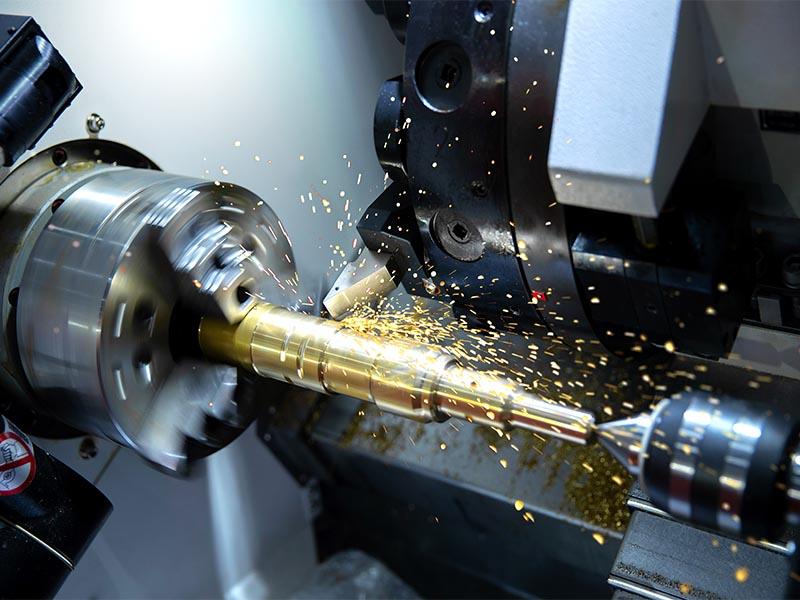CNC Machining Services: The Spine of Modern Precision Manufacturing
CNC Machining Services: The Spine of Modern Precision Manufacturing
Blog Article
CNC machineries have revolutionized manufacturing by providing a precise and efficient technique for manufacturing parts and other components for many different sectors. This cutting-edge technology utilizes computer-controlled machines to carry out cutting, drilling, milling, and various other processes on materials such as metals, plastics, and wood. The level of precision obtained through CNC milling is unrivaled and allows for intricate design to be completed with extreme accuracy. Through replacing manual input with automated processes, CNC machines have significantly reduced the likelihood that human error will occur and has also improved manufacturing speed. This combination of precision and efficiency has helped make CNC machines an essential part of modern manufacturing processes.
The core feature of CNC machine is the capability to convert digital design concepts into tangible parts. With the help of computer-aided designing (CAD) software, engineers and designers create precise 3D models of the desired component. This digital design is then transformed into precise directions, or "G-code," which the CNC machine uses to complete processes like cutting and milling. The digital control system allows for a high level of precision that manual milling cannot attain. This also means that when a design has been entered into the machine, it is able to be reproduced without any issues, and produce similar parts in large numbers without needing manual adjustments. It's crucial for repeatability in all industries where precision as well as uniformity are crucial.
Efficiency is another major benefit in CNC cutting. Once the design is encoded into the machine it is able to run in a controlled manner making multiple actions with no need for personal intervention. This automation leads to faster production times and greater accuracy in the quality of the parts produced. In addition, CNC machines can operate continuously, meaning that manufacturers can produce parts around every minute, thereby which can increase overall output. As opposed to traditional methods of machining, which require experienced machinists to control the tools, CNC machining offers a considerable reduction in costs for labor and also the chance of errors by humans, which makes it a cost-effective solution for large-scale production.
One of the main benefits of CNC machining is its efficiency. By automating the machining process it is possible for manufacturers to drastically reduce the amount of time needed for the production of parts, leading to a faster cycle of production as well as cost savings. Because CNC machines operate 24/7 with minimal human supervision and can produce more output without sacrificing quality. This degree of automation minimizes the risk of human error, ensuring that each part produced meets precisely the requirements specified in the model. Further, CNC machining allows for "lights-out" manufacturing, where machines continue to operate even after workers have left, further boosting productivity and cutting down on labor costs. To obtain added information kindly look at www.premiumparts.com/services/cnc-machining
CNC Machining is also acclaimed for its versatility of the types of materials it is able to work with. From metals like steel, aluminum, and titanium to plastics, wood, even carbon fiber, CNC machines can be used with a range of materials to produce parts to be used in various applications. This versatility makes CNC machines suitable for a range of different industries which have their own unique material requirements. As an example, the medical sector typically requires components made from biocompatible materials like titanium. Meanwhile, the automobile industry uses tough metals like steel for engines and other components. However, regardless of the type of material used, CNC machines can deliver accurate cuts with consistent result, and ensure that the product will meet the necessary performance and durability specifications.
Another obstacle in CNC machining lies in the setting up and programming of the CNC machines. Although CNC machines remove a lot of the manual labor involved during the production process, they still require skilled technicians who can create and enter all the programs needed. These technicians must have expertise in CAD/CAM (Computer-Aided Design/Computer-Aided Manufacturing) software and understand the specific machining requirements of each project. Programming errors can cause defective parts or materials being wasted, as well as machines being shut down. Additionally, the initial setup of the CNC machine can take time, particularly with complicated projects that need many tools or procedures. But once the machine has been properly installed and programed it is able to create components with remarkable speed and accuracy making it less likely to make failures in subsequent runs.